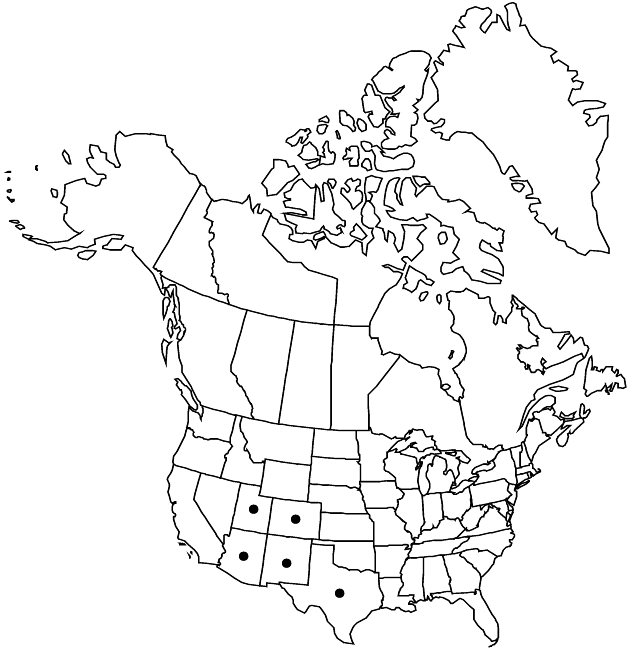Arida parviflora
Sida 20: 1414. 2003.
Annuals or short-lived perennials, 10–50 cm; taproots slender to ± thickened. Stems 1–15+, mostly erect to ascending, rarely reclining, slender, much branched distally or throughout, glaucous, glabrous or sparsely gland-dotted from midstem distally. Leaves mostly cauline; sessile; blades lanceolate to oblong, reduced distally, 10–30 × 2–7 mm, bases often clasping, margins shallowly or deeply pinnatifid to 2-pinnatifid, toothed, or entire, apices apiculate to rounded, faces glabrous to sparsely stipitate-glandular; distal ascending to appressed. Heads borne singly (terminal), in loose, leafy, corymbiform arrays. Involucres hemispheric, 3–5 × 4–6 mm (fresh). Phyllaries in 3–4 series, ± appressed, lanceolate to oblanceolate, 1–4 mm, bases whitish, margins ± entire, apices green or purple, mostly acute, minutely glandular. Ray-florets 10–30+; laminae violet-blue to lavender, rarely whitish, 6–8 mm, coiled after flowering. Disc-florets 18–40+; corollas yellow, 4–5 mm. Cypselae oblanceolate, 1.5–2 mm, 8–10 per face, faces moderately sericeous; pappi setose; ray 0 or white, 1–1.5 mm; disc whitish, 4–5.5 mm. 2n = 10.
Phenology: Flowering Jul–Oct.
Habitat: Saline flats, playas, swales, sandy areas, river margins
Elevation: 1100–1700 m
Distribution

Ariz., Colo., N.Mex., Tex., Utah, Mexico (Chihuahua), Mexico (Coahuila)
Discussion
Arida parviflora is recognized by its wiry stems, small, deeply pinnatifid leaves, rather small involucres, and ray cypselae usually with pappi. This species is often described as being an annual; however, some specimens have a large, woody root and well-developed branching crown like a perennial plant.
Selected References
None.